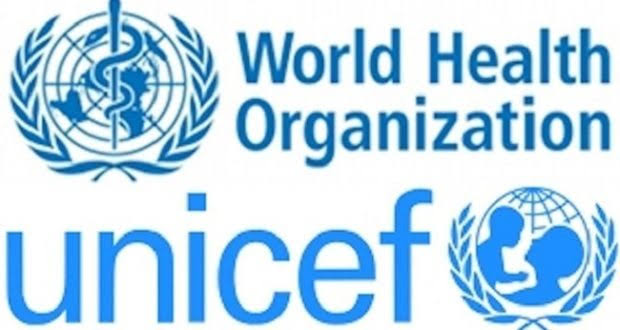By Zayamu Hassan
The World Health Organisation (WHO) and the United Nation Children Fund (UNICEF) have raised alarm over what they described as the decline in global vaccination coverage in 2021 with 25 million infants missing out on lifesaving vaccines.
The two UN agencies are currently working with Gavi, the Global Vaccine Alliance and other partners to deliver the global Immunization Agenda 2030 (IA2030).
In a data they jointly published, UNICEF and WHO said that the vaccination decline is the largest sustained decline in childhood vaccinations in approximately 30 years.
In a joint statement, the two global bodies said that the collaboration between GAVI and other partners is a strategy for all countries and relevant global partners to achieve set goals on preventing diseases through immunization and delivering vaccines to everyone, everywhere, at every age.
“It’s heart-breaking to see more children losing out on protection from preventable diseases for a second year in a row. The priority of the Alliance must be to help countries to maintain, restore and strengthen routine immunization alongside executing ambitious COVID-19 vaccination plans, not just through vaccines but also tailored structural support for the health systems that will administer them,” said Dr Seth Berkley, CEO of Gavi, the Vaccine Alliance.
The IA2030 partners, however, called on governments and relevant actors to intensify efforts for catch-up vaccination to address backsliding on routine immunization, and expand outreach services in underserved areas to reach missed children and implement campaigns to prevent outbreaks.
They also called for the implement of evidence-based, people-centred, and tailored strategies to build trust in vaccines and immunization, counter misinformation and increase vaccine uptake particularly among vulnerable communities and ensure current pandemic preparedness and response and the global health architecture strengthening efforts lead to investment in primary health care (PHC) services, with explicit support to strengthen and sustain essential immunization.
The IA2030 partners further called on the governments to ensure political commitment from national governments and increase domestic resource allocation to strengthen and sustain immunization within PHC; as a matter of urgency, prioritize health information and disease surveillance systems strengthening to provide the data and monitoring needed for programmes to have maximum impact; and leverage and increase investment in research to develop and improve new and existing vaccines and immunization services that can achieve community needs and deliver on IA2030 goals.
Commenting on the declined global vaccination coverage, the WHO and UNICEF in a statement disclosed that the percentage of children who received three doses of the vaccine against diphtheria, tetanus and pertussis (DTP3) – a marker for immunization coverage within and across countries – fell 5 percentage points between 2019 and 2021 to 81 per cent.
As a result, the statement said that 25 million children missed out on one or more doses of DTP through routine immunization services in 2021 alone.
This is 2 million more than those who missed out in 2020 and 6 million more than in 2019, highlighting the growing number of children at risk from devastating but preventable diseases.
The decline, according to the statement, was due to many factors including an increased number of children living in conflict and fragile settings where immunization access is often challenging, increased misinformation and COVID-19 related issues such as service and supply chain disruptions, resource diversion to response efforts, and containment measures that limited immunization service access and availability.
“This is a red alert for child health. We are witnessing the largest sustained drop in childhood immunization in a generation. The consequences will be measured in lives,” said Catherine Russell, UNICEF Executive Director. “While a pandemic hangover was expected last year as a result of COVID-19 disruptions and lockdowns, what we are seeing now is a continued decline. COVID-19 is not an excuse.
“We need immunization catch-ups for the missing millions or we will inevitably witness more outbreaks, more sick children and greater pressure on already strained health systems.”
They WHO and UNICEF further lamented that this historic backsliding in rates of immunization was happening against a backdrop of rapidly rising rates of severe acute malnutrition.
A malnourished child, they said, already has weakened immunity and that missed vaccinations can mean common childhood illnesses quickly become lethal to them. The convergence of a hunger crisis with a growing immunization gap threatens to create the conditions for a child survival crisis.
“Planning and tackling COVID-19 should also go hand-in-hand with vaccinating for killer diseases like measles, pneumonia and diarrhea,” said Dr Tedros Adhanom Ghebreyesus, WHO Director-General. “It’s not a question of either/or, it’s possible to do both”.
Vaccine coverage, the statement revealed, dropped in every region, with the East Asia and Pacific region recording the steepest reversal in DTP3 coverage, falling nine percentage points in just two years.


